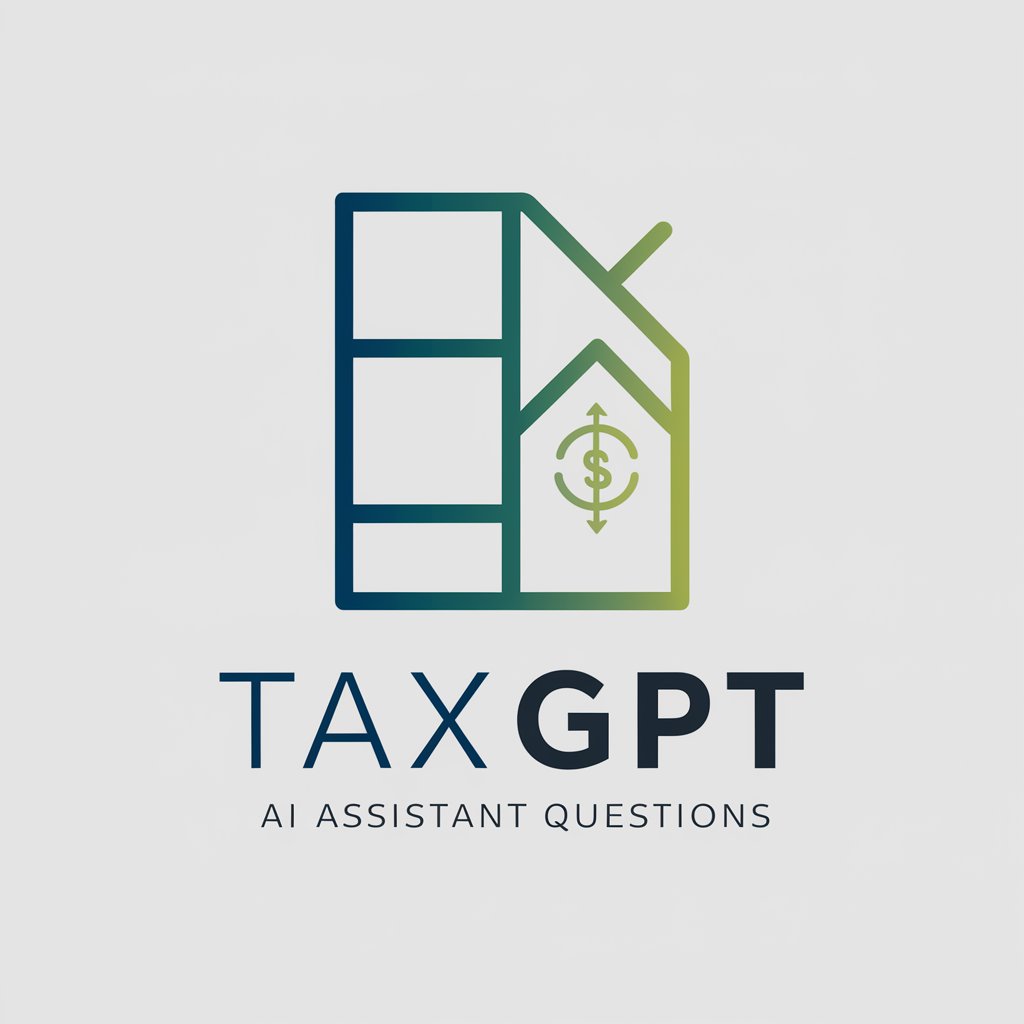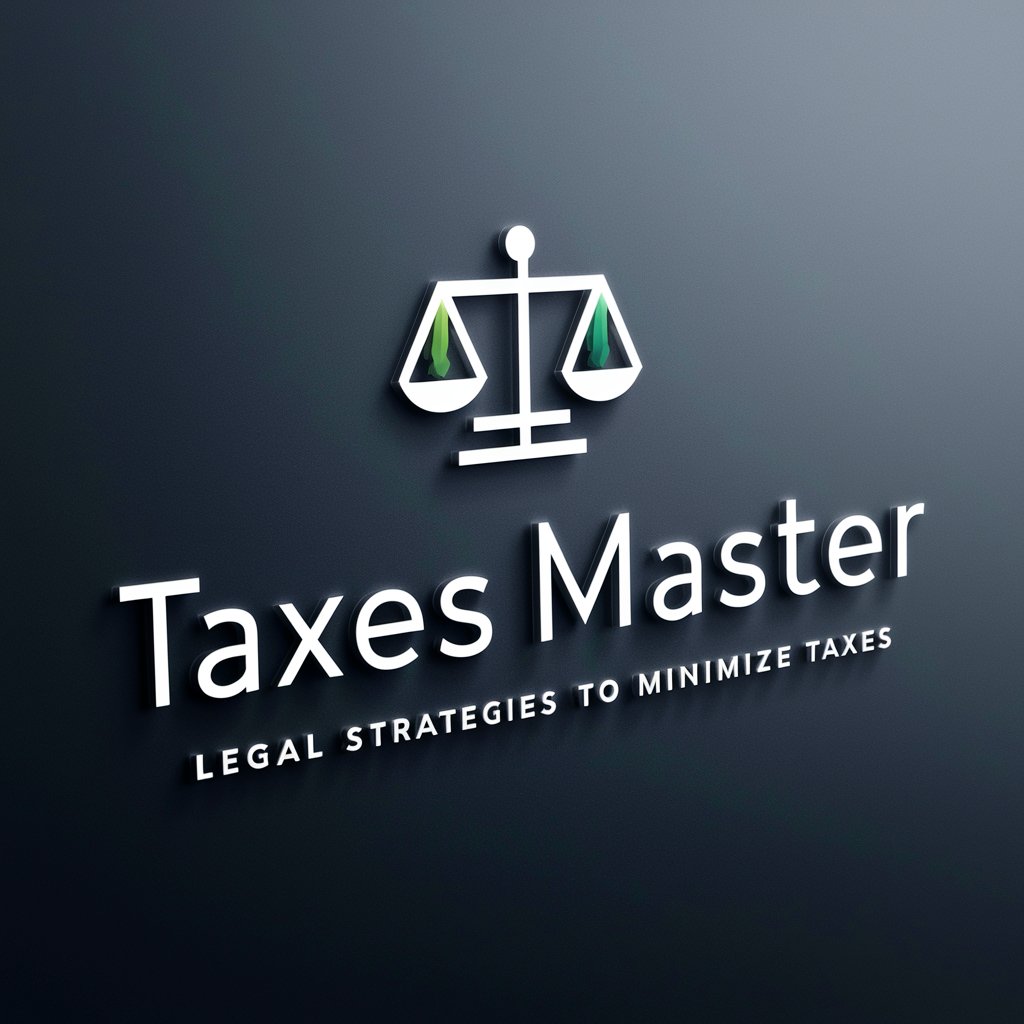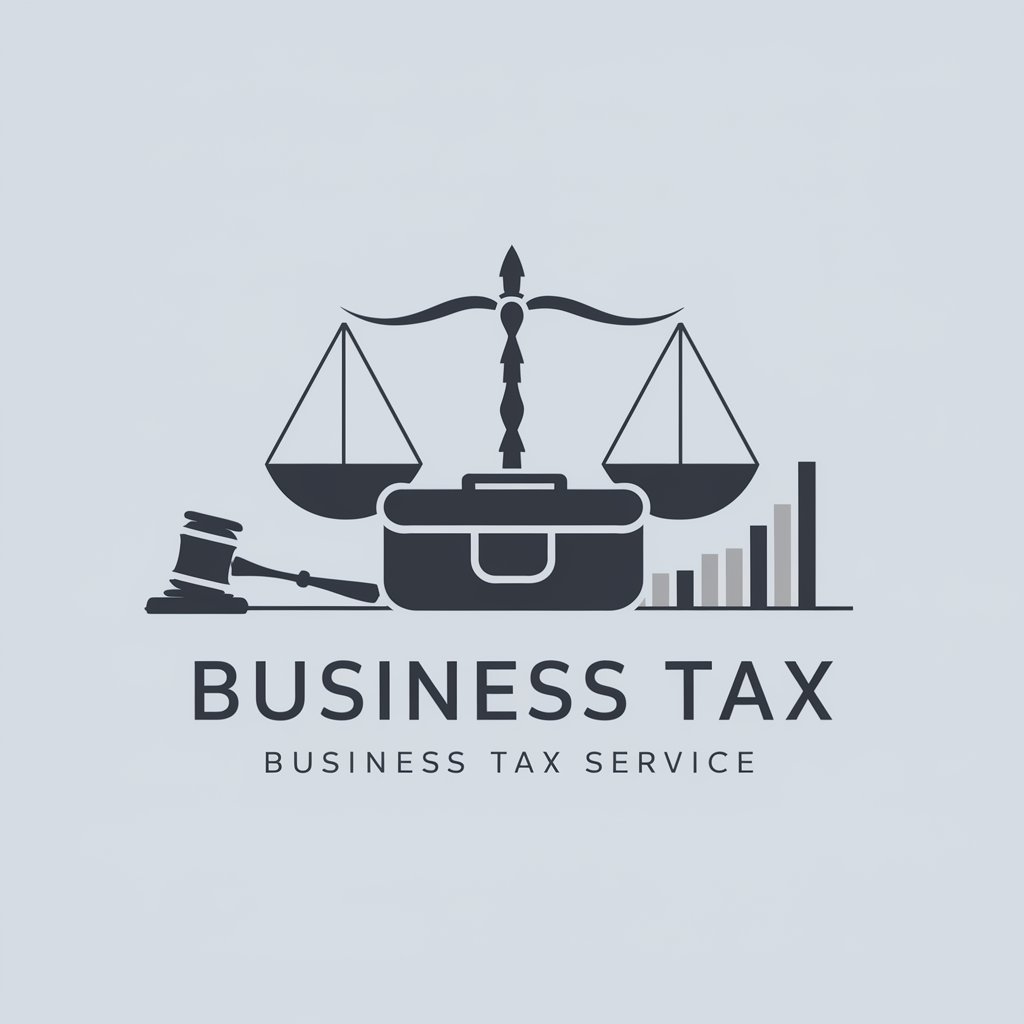14 GPTs for Tax Strategies Powered by AI for Free of 2026
AI GPTs for Tax Strategies are advanced computational tools designed to offer tailored assistance and insights in the field of taxation. By leveraging Generative Pre-trained Transformers, these AI systems provide personalized tax planning and strategy solutions. They are specifically engineered to understand and analyze complex tax regulations, identify tax-saving opportunities, and offer predictive analysis on tax implications of various financial decisions. The relevance of these tools in the tax domain lies in their ability to digest vast amounts of tax-related data and regulations, offering users strategic advice that aligns with current tax laws and practices.
Top 10 GPTs for Tax Strategies are: TaxGPT,Taxes Master,SteuerGPT,USA Taxation Law Master,Tax Mentor,FINBY,Andrew Darius' Accountant,Business Tax Lawyer,PersonalFinanceAI,MoneyBecky.com
TaxGPT
Simplifying Taxation with AI Expertise

Taxes Master
Navigating Taxes with AI-Powered Precision

SteuerGPT
Your Personal Tax Expert, Powered by AI

USA Taxation Law Master
AI-Powered U.S. Tax Law Expertise

Tax Mentor
Your Personal AI Tax Advisor

FINBY
Empowering Your Financial Decisions with AI

Andrew Darius' Accountant
Empowering Your Financial Decisions with AI

Business Tax Lawyer
Streamlining Tax Compliance with AI

PersonalFinanceAI
Empowering financial decisions with AI

MoneyBecky.com
Empowering Your Finances with AI

FIRE GPT
Empowering Your Financial Independence

Finance Strategist
Empowering Financial Decisions with AI

Money Mentor
Empowering financial decisions with AI

Canadian Penny Pincher
Master Your Finances with AI

Key Attributes and Functions
AI GPTs for Tax Strategies boast a range of unique features tailored to the tax sector. These include advanced language comprehension for interpreting tax legislation, adaptability to handle tasks ranging from basic tax queries to complex tax planning scenarios, and technical support for tax-related inquiries. Special features include the ability to perform deep data analysis, web searching for the latest tax updates, and creating detailed reports or recommendations. These tools stand out for their ability to learn and update their knowledge base with the latest tax laws and strategies, ensuring users receive the most current and relevant tax advice.
Who Can Benefit
The primary beneficiaries of AI GPTs for Tax Strategies include tax professionals, accountants, financial advisors, and business owners seeking to optimize their tax positions. Additionally, these tools are accessible to novices with limited tax knowledge, offering straightforward guidance and advice. For developers and tech-savvy users, these AI tools provide extensive customization options, allowing the integration of AI GPTs into existing tax preparation software or financial analysis systems, thereby enhancing their functionality and value.
Try Our other AI GPTs tools for Free
Insurance Planning
Discover how AI GPTs revolutionize insurance planning with tailored, intelligent solutions designed for industry professionals and policyholders alike.
Cartoon Creation
Explore the future of cartoon creation with AI GPT tools, designed to innovate character design, storytelling, and animation for creators at all levels.
City Explorations
Discover how AI GPTs for City Explorations can transform your urban adventures with tailored guides, insights, and data analysis. Perfect for travelers, planners, and curious minds.
Advertising Optimization
Discover how AI GPTs for Advertising Optimization leverage cutting-edge technology to automate and enhance your advertising strategies, making them more effective and data-driven.
Beauty Tips
Discover how AI GPTs for Beauty Tips revolutionize beauty routines with personalized advice, making expert knowledge accessible to all.
Self-Care Routines
Discover AI GPTs for Self-Care Routines – intelligent, adaptable tools designed to enhance your wellness journey with personalized tips, comprehensive health information, and innovative self-care solutions.
Expanding Horizons with AI in Taxation
AI GPTs for Tax Strategies represent a significant advancement in the way tax planning and strategy is approached. They not only provide real-time, data-driven insights but also enhance the ability to make informed decisions. The integration of these AI tools into financial workflows offers a competitive edge by streamlining processes, reducing errors, and identifying strategic tax-saving opportunities. Their user-friendly interfaces further democratize access to sophisticated tax advice, making it available to a broader audience.
Frequently Asked Questions
What exactly are AI GPTs for Tax Strategies?
AI GPTs for Tax Strategies are artificial intelligence tools that use Generative Pre-trained Transformer technology to provide tailored tax advice and strategic planning.
How do AI GPTs update their knowledge on tax laws?
These AI tools continuously learn from a wide range of sources, including legislative updates, tax law changes, and new tax-related data, to keep their advice current and accurate.
Can non-experts use these AI tools effectively?
Yes, AI GPTs for Tax Strategies are designed with user-friendly interfaces that make them accessible to individuals without extensive tax knowledge.
Can these AI tools integrate with existing tax software?
Yes, many AI GPTs for Tax Strategies offer APIs and customization options that allow them to be integrated with existing tax preparation or financial analysis software.
Do AI GPTs for Tax Strategies offer personalized tax advice?
Yes, these tools can provide personalized tax planning and strategy advice based on individual or business financial data and goals.
How secure are AI GPTs for Tax Strategies with sensitive information?
AI GPTs are built with advanced security measures to protect sensitive financial and tax-related information, adhering to data protection and privacy laws.
Can AI GPTs predict future tax implications?
Yes, by analyzing financial data and current tax laws, AI GPTs can offer predictive insights on potential tax implications and savings opportunities.
Are there any limitations to using AI GPTs for Tax Strategies?
While highly advanced, AI GPTs may not account for all individual nuances or replace the need for professional tax advice in complex scenarios.